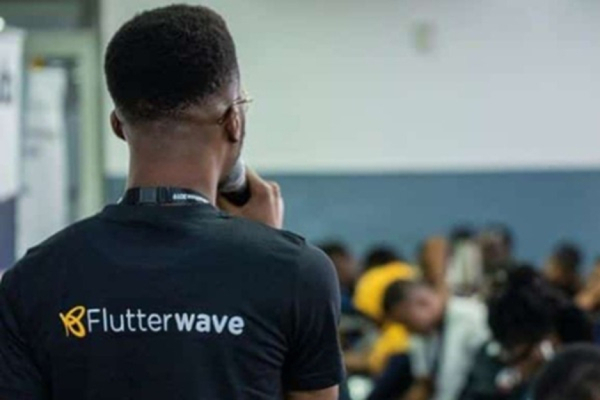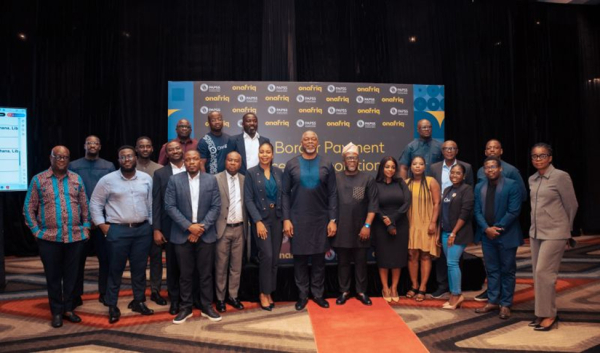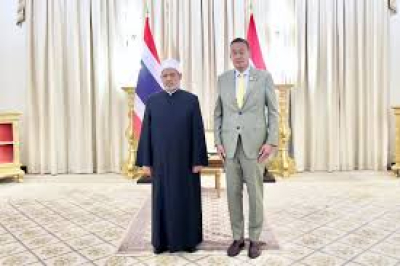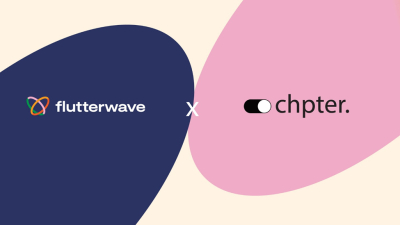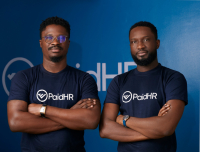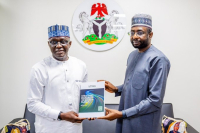
Brief (623)
African payments technology company Flutterwave has announced it has secured 20 new Money Transmitter Licenses (MTLs) across the United States, significantly expanding its ability to offer faster and more reliable cross-border payment services.
The newly acquired licenses mean customers across more U.S. states and territories can now send money more easily and securely to countries including Nigeria, Ghana, Egypt, and Cameroon.
The new licenses reinforce the company’s mission to simplify international payments and strengthen economic ties between the U.S. and Africa.
African payments company Onafriq launched its new cross-border payment service on July 3 in Accra. This ushers in a transformative way for individuals and businesses to move money seamlessly across African borders.
The new service directly connects banks, fintechs, and mobile money operators, enabling instant transfers from Ghanaian mobile wallets to Nigerian bank accounts and wallets. This integration allows traders to settle cross-border transactions more efficiently, families to remit money to loved ones, and businesses to streamline payments to suppliers and employees.
The service launch marks a significant step toward reducing reliance on costly and slow traditional remittance channels, making it easier for millions of Africans to participate in regional economic activities.
Liquify, an invoice financing platform for SMEs, has officially announced the close of its oversubscribed $1.5 million seed round aimed at accelerating its expansion across Sub-Saharan Africa.
The round was led by Future Africa, with participation from Launch Africa Ventures, 54 Collective, and Equitable Ventures, along with a group of strategic angel investors. Emerald Africa also extended its debt facility, strengthening Liquify’s liquidity and enabling greater flexibility to support its expanding SME customer base.
With this fresh capital, Liquify plans to scale operations in its Ghanaian hub by hiring across product, technology, and customer success teams. The company will also expand into both Anglophone and Francophone markets, extending its reach to serve more SME exporters across the region.
Egypt and Thailand have strengthened ties in the digital economy with the Egypt–Thailand ICT Networking Event, organized by ITIDA in collaboration with Thailand and the Royal Thai Embassy in Cairo.
The event brought together officials and tech leaders from both countries to explore collaboration in ICT. The forum featured B2B matchmaking sessions, enabling direct connections between Egyptian and Thai tech companies and fostering potential investment, outsourcing, and innovation opportunities.
The event supports Egypt’s digital transformation goals and Thailand’s drive to globalize its software industry.
EdgeNext, an edge computing and cloud infrastructure provider, has announced a partnership with iXAfrica Data Centres, East Africa’s AI-ready, hyperscale data center provider, to bolster the region’s fast-growing digital economy.
The collaboration merges EdgeNext’s global edge platform with iXAfrica’s carrier-neutral infrastructure at the Nairobi One (NBOX1) campus. The result: a powerful ecosystem capable of delivering ultra-low-latency, high-performance, and compliance-ready solutions to enterprise clients in the finance, media, telecom, gaming, and cloud-native sectors.
The partnership is expected to streamline operations for regional and international businesses while enhancing data compliance, security, and real-time performance.
Payments technology company Flutterwave has partnered with Chpter, an AI-powered conversational commerce platform, to simplify how businesses sell and get paid through social media. The partnership, announced June 19, empowers businesses to seamlessly engage customers, automate sales conversations, and process local and international payments within popular platforms like WhatsApp, Instagram, and Facebook.
Chpter’s platform integrates checkout, customer insights, campaign automation, and AI-driven customer support via virtual agents “Jess” and “Bran”. These AI personas act as 24/7 sales and customer service representatives, delivering data-informed product recommendations and managing inquiries even when business owners are offline.
With payments powered by Flutterwave, businesses can now receive money in real-time via cards, mobile money, bank transfers, and other digital methods, both locally and internationally.
Nigerian HR-tech startup PaidHR has raised $1.8 million in seed funding to deepen its mission of simplifying payroll and workforce management for African businesses. The round, announced June 23, was led by Accion Venture Lab, with participation from returning investors Zrosk, Chui Ventures, and Zedcrest Capital.
The new capital follows a $500,000 pre-seed round in 2022. It will be used to accelerate product development, grow the team, scale across Africa, and expand offerings in compliance automation, HR analytics, and employee financial wellness.
As African businesses increasingly digitalize operations amid economic uncertainty, PaidHR positions itself at the center of a rising need for intuitive, scalable, and inclusive workforce solutions.
The Information Technology Industry Development Agency (ITIDA), in partnership with 500 Global, has opened applications for Batch 6 of the Egypt Seed Bootcamp, scheduled to run from September 27 to October 1, 2025.
The five-day immersive program is tailored for Egypt-based pre-seed and seed-stage startups, offering founders the tools and mentorship needed to gain clarity, accelerate growth, and develop actionable strategies.
Participants will benefit from one-on-one guidance from global experts and deep dives into critical startup areas, including growth hacking, branding, storytelling, fundraising, team building, and talent development. The deadline for applications is July 13.
The National Information Technology Development Agency (NITDA) and the National Commission for Refugees, Migrants and Internally Displaced Persons (NCFRMI) are expanding their partnership to improve digital access and skills for displaced Nigerians.
NITDA Director General Kashifu Inuwa and NCFRMI Federal Commissioner Aliyu Tijani Ahmed discussed scaling up digital literacy, ICT tool deployment, and tailored training for displaced persons and vulnerable youth.
The renewed collaboration, announced June 19, also includes capacity building for NCFRMI staff. The goal is to equip displaced communities with the digital tools needed to access education, start businesses, and integrate into the digital economy.
Starlink, SpaceX’s satellite internet service, is now available in Guinea-Bissau, delivering high-speed, low-latency connectivity to the country, it announced June 18.
This rollout marks Starlink’s entry into its 20th African market. The improved connectivity is expected to benefit key sectors like education, healthcare, agriculture, and enable more remote work and digital services.
While costs may still limit widespread adoption, Starlink’s arrival represents a major step toward closing Guinea-Bissau’s digital divide and expanding internet access across the country.
More...
Smart Africa, YouthConnekt Africa, and 4Ds Metrics have launched the Youth Emerge Challenge, calling on young African innovators aged 18 to 35 to apply for a chance to gain continental recognition, expert mentorship, and a showcase opportunity at the Transform Africa Summit 2025.
Applications will be evaluated based on customer desirability—how well the solution addresses a real, validated need—technical feasibility, and business viability, with an emphasis on scalability and sustainability in the target market.
The initiative reinforces Smart Africa’s digital transformation agenda and YouthConnekt Africa’s mission to empower youth through innovation and entrepreneurship. The deadline to apply is June 20, 2025.
The Information Technology Industry Development Agency (ITIDA) has launched an expanded Summer Training Program in collaboration with the National Telecommunication Institute (NTI) and Systel, distributor of Motorola Solutions in Egypt. The initiative aims to train 10,000 university students in ICT and digital arts, reinforcing Egypt’s push to grow its tech talent pipeline.
The program targets first to third-year students in engineering, computer science, information systems, mass communication, fine and applied arts, and art education. Training is free of charge and students can choose from eight specialized tracks: cybersecurity, software development and UI/UX design, data analytics and AI, cloud computing, systems administration, electronics, digital arts, and digital marketing. Participants are also eligible for up to 70% discounts on international certification exams.
VERA, a secure B2B communications platform, has partnered with cheqd, a payment infrastructure, to deliver verifiable digital identity and encrypted messaging for businesses across South Africa and beyond, it announced June 10.
The partnership kicks off with a beta launch of VERA’s platform on June 1st, 2025, tailored specifically for South African enterprises. A full minimum viable product (MVP) rollout is expected by the end of August.
This collaboration aims to build a verifiable identity ecosystem that empowers companies to communicate and transact with confidence—an increasingly critical need as cyber fraud and impersonation threats grow.
Meta has launched the Llama Impact Accelerator, a new program supporting startups across Sub-Saharan Africa to build open-source AI solutions that address local challenges in agriculture, healthcare, education, public services, financial inclusion, and security.
The six-week accelerator will run in Nigeria, Kenya, Senegal, and South Africa, offering equity-free funding, technical training, mentorship, and business support. The program is being implemented in collaboration with national innovation agencies and local ecosystem partners.
Each accelerator will culminate in a Demo Day, where teams present their Llama-powered solutions to a panel of local and international experts. Top teams will receive six months of extended support focused on product development, community building, and market expansion.


